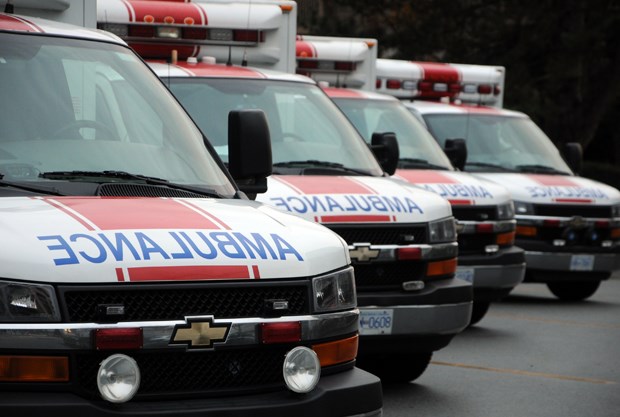British Columbia’s 911 operators will no longer stay on the phone with people seeking emergency services as they wait to get transferred to ambulance dispatchers.
The move, announced by E-Comm 911 management Wednesday, came after rising wait times, made worse by ongoing flooding, have left emergency dispatchers tied up on the phone for minutes at a time.
The temporary measure means anyone calling 911 will be told they are in the queue for an ambulance but that the 911 call-taker must disconnect so they can answer other calls. The new procedures will be reviewed on a monthly basis, according to an E-Comm press release.
“This new process puts the safety of all British Columbians first — and we believe this change will take some pressure off the emergency communications system that will allow our staff to potentially help save more lives,” said president and CEO of E-Comm Oliver Grüter-Andrew in a written statement.
E-Comm says it's working with BC Emergency Health Services to triage life-threatening calls. The ambulance service, meanwhile, is boosting staffing levels to meet demand.
The announcement was immediately slammed by the union representing E-Comm call-takers. Donald Grant, president of CUPE Local 8911 and a fire dispatcher in Vancouver, described the decision as reckless and said it could put people’s lives in danger.
As of today, Grant said that anyone calling an ambulance in B.C. could be on hold for up to 20 minutes without an operator to reassure them.
In a worst-case scenario, Grant said a caller suffering a heart attack might manage to make a 911 call, but then lose consciousness while they are on hold.
“There's no one there to know that your condition worsens, or to know that you've lost consciousness. On the other end, it'll just be an empty line.”
Instead of reducing services at E-Comm, Grant said the union is calling on local governments to immediately provide an infusion of funding to help bolster staffing at the dispatcher service.
Grant pointed to a recent report conducted by PricewaterhouseCoopers that found the system needed an over 80 per cent boost in staffing in order to meet operational demands.
“Extreme flooding across the region, the heat wave — all these events keep coming one after another. And we need more support,” said Grant. “We need backup to make sure that we're able to answer these calls because there just simply aren't enough of us.”
The province's emergency services were nearly paralyzed in late June when a record-breaking heat dome killed nearly 600 people and led to ambulance wait times of over 11 hours. Two weeks later, Health Minister Adrian Dix said the province would provide immediate funding to hire dozens of new paramedics and dispatchers as the ministry moves to 'renew' the ambulance service for the 21st century.




